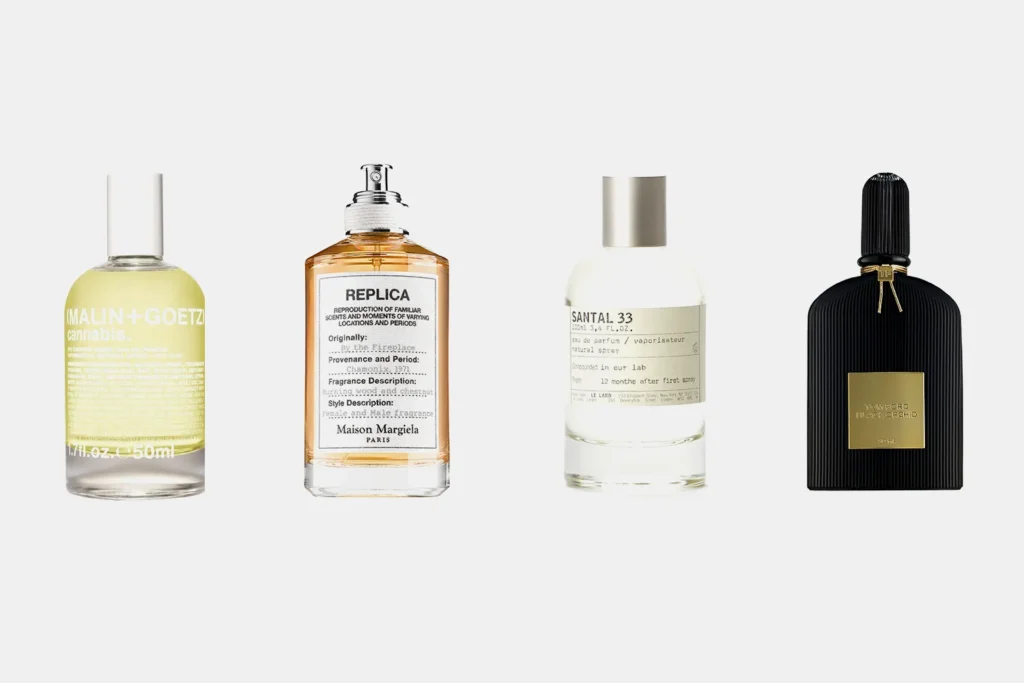Blog
The Role of Perfume in Different Cultures Around the World
The Role of Perfume in Different Cultures Around the World
Perfume has been an essential part of human civilization for centuries. Beyond just a luxury item or a way to smell good, fragrance plays a significant role in various cultures across the world. From ancient rituals to modern-day practices, perfume is intertwined with cultural identity, social status, and even spiritual beliefs. This article delves into the role of perfume in different cultures and how it has evolved over time.
Perfume in Ancient Egypt: Sacred and Divine
Ancient Egypt is one of the earliest civilizations known to have used perfume, and the Egyptians saw fragrance as something sacred. For them, perfume wasn’t just a cosmetic; it was a symbol of purity, luxury, and divine power. The use of perfume was widespread, from everyday life to religious rituals. The Egyptians were among the first to develop distillation techniques, which allowed them to extract essential oils from flowers, herbs, and spices.
Spiritual Significance: Perfume in Ancient Egypt was considered a divine offering to the gods. They believed that incense and scented oils could attract the favor of gods and spirits. Temples were often filled with fragrant offerings, and priests would use perfume to purify themselves before engaging in religious ceremonies. The Egyptian queen Cleopatra, known for her beauty, is said to have used perfume as a way to enhance her allure and power. Scents like myrrh, frankincense, and lotus were highly valued and frequently used in their rituals.
Perfume as Symbol of Status: Perfume also had a strong association with social status in ancient Egypt. The wealthy elite would wear perfumes made from the finest oils and ingredients, often imported from other regions. The use of perfume was not limited to the elite, however; even common people would apply perfumes and scented oils, though typically less expensive varieties.
Perfume in the Middle East: The Heart of Fragrance
In the Middle East, perfume is more than just a personal scent—it’s a deeply rooted cultural tradition. The Middle East is often regarded as the birthplace of modern perfumery, with the region’s rich history of fragrance-making dating back thousands of years. The Arab world is known for producing some of the finest natural perfumes, and scent plays an important role in social interactions, hospitality, and even religion.
Cultural Importance: Fragrance in the Middle East is often used as a way to make a personal statement. Many people in the region wear perfume not only to smell good but also to assert their identity, communicate their wealth and status, and express their personality. In Arab culture, offering perfume to guests is a symbol of hospitality and generosity. It’s a tradition to present guests with a small bottle of perfume or a fragrance gift, symbolizing warmth and respect.
Traditional Fragrances: Traditional Middle Eastern perfumes are often made from rich, deep, and exotic ingredients such as oud, musk, rose, and amber. Oud, in particular, is a highly prized fragrance in the region. Derived from the agarwood tree, oud is used in perfumes, incense, and even in the form of oil that is applied directly to the skin. This smoky, woody scent is associated with luxury and elegance. The rituals of perfume use are so deeply ingrained in the culture that the Middle East remains a global leader in the perfume industry.
 Perfume in India: Fragrance as Spirituality
Perfume in India: Fragrance as Spirituality
In India, perfume is not only used to enhance personal aroma but is also an essential element of spiritual practice and cultural traditions. The use of fragrance is deeply connected to religious rituals, meditation, and offerings. India has a long history of using perfumes, particularly from natural sources like flowers, herbs, and spices.
Religious and Spiritual Significance: In Hinduism, fragrance is closely linked to the idea of purity and divine presence. Incense is burned in temples as an offering to deities, and the rich, floral aromas are believed to attract the gods’ blessings. Popular fragrances like sandalwood, jasmine, and rose are often used in temples, homes, and during festivals. The act of offering these scents during worship is seen as a way of connecting the material world with the divine.
Perfume in Daily Life: Beyond religious practices, fragrance also plays a part in everyday life. In India, people use attars, natural perfume oils, made from flowers, herbs, and spices. These attars are often applied directly to the skin and are valued for their purity and long-lasting qualities. Unlike alcohol-based perfumes, attars are alcohol-free and more suited to the hot climate, making them particularly popular in India.
Perfume in France: The Art of Perfumery
France is perhaps the most famous country when it comes to perfume, and for good reason. The French have turned perfumery into an art form, and their fragrances are some of the most sought-after in the world. French perfumery traces its roots back to the 16th century, and since then, the country has played a major role in the development of modern perfumes.
Perfume as an Art Form: In France, perfume is seen not just as a commodity, but as an expression of culture, creativity, and craftsmanship. The perfume industry in Grasse, a region in southern France known as the “Perfume Capital of the World,” has been producing fragrances for centuries. French perfumers are known for their expertise in blending various notes to create complex, multi-layered scents. The French view perfume as a personal signature—a way to convey emotions and identity without words.
Perfume as Luxury: France is also where luxury perfume brands like Chanel, Dior, and Guerlain were born. For many, French perfume is synonymous with high-end, exclusive products. French perfumers are experts at using top-tier ingredients like rose, jasmine, iris, and bergamot. Perfume in France has a cultural significance not just in everyday life, but as a symbol of sophistication and elegance.
Perfume in Japan: Subtlety and Restraint
In Japan, the use of fragrance is often more subtle compared to the bold, statement-making perfumes found in other cultures. Japanese culture values restraint and simplicity, and this is reflected in the country’s approach to fragrance. Perfume in Japan is often used to complement rather than dominate one’s presence, and the focus is on creating a fresh, clean scent.
Cultural Significance: In Japan, perfumes are often used in the form of incense or scented oils rather than strong, alcohol-based sprays. The practice of burning incense, known as kōdō (the Way of Fragrance), has been part of Japanese culture for centuries. Kōdō is a ritualistic practice that focuses on the appreciation of fragrance, often involving the burning of incense in quiet, meditative settings. The aim is not just to smell good, but to experience the depth and complexity of the scent in a spiritual and contemplative manner.
Modern Fragrance Trends: In modern Japan, perfume is used in a more understated manner. While Western-style perfumes are popular, many Japanese people opt for lighter, more delicate fragrances that are not overpowering. Fresh, floral, and citrus-based scents are preferred for daily wear, embodying the cultural values of purity and subtlety.
 Perfume in Africa: Ancient Rituals and Modern Trends
Perfume in Africa: Ancient Rituals and Modern Trends
In Africa, perfume has a rich history that dates back to ancient times, particularly in regions such as Egypt, Ethiopia, and Morocco. Perfume has been used for various purposes, including religious rituals, healing, and personal adornment. In recent years, African fragrances have gained international recognition, as many African countries have unique and high-quality perfume ingredients.
Traditional Use: In African cultures, perfumes are often made from locally sourced ingredients like flowers, herbs, and essential oils. For example, Moroccan argan oil is sometimes used in perfume production, while frankincense and myrrh, which have deep religious and spiritual significance, are often used in rituals. In many African cultures, perfumes are seen as a form of personal expression and are often worn during special events such as weddings, festivals, and ceremonies.
Modern Trends: In contemporary Africa, perfume is becoming increasingly popular in urban areas, where people are embracing luxury perfumes from both African and international brands. African perfumers are also creating unique blends that reflect the continent’s rich cultural heritage. African perfumes are gaining a reputation for their exotic ingredients and deep, rich scents that appeal to global markets.
 Conclusion
Conclusion
Perfume is more than just a way to smell good; it is an essential part of cultural identity, tradition, and personal expression. Across different cultures, perfume plays a wide range of roles—from sacred rituals to social status symbols, and from spiritual practices to artistic creations. Whether in the ancient temples of Egypt, the fragrant souks of the Middle East, or the luxurious perfume houses of France, fragrance has the power to evoke emotion, tell a story, and create lasting impressions. Understanding the cultural significance of perfume allows us to appreciate not just its scent, but also its rich history and the deep connections it has with people all over the world.


